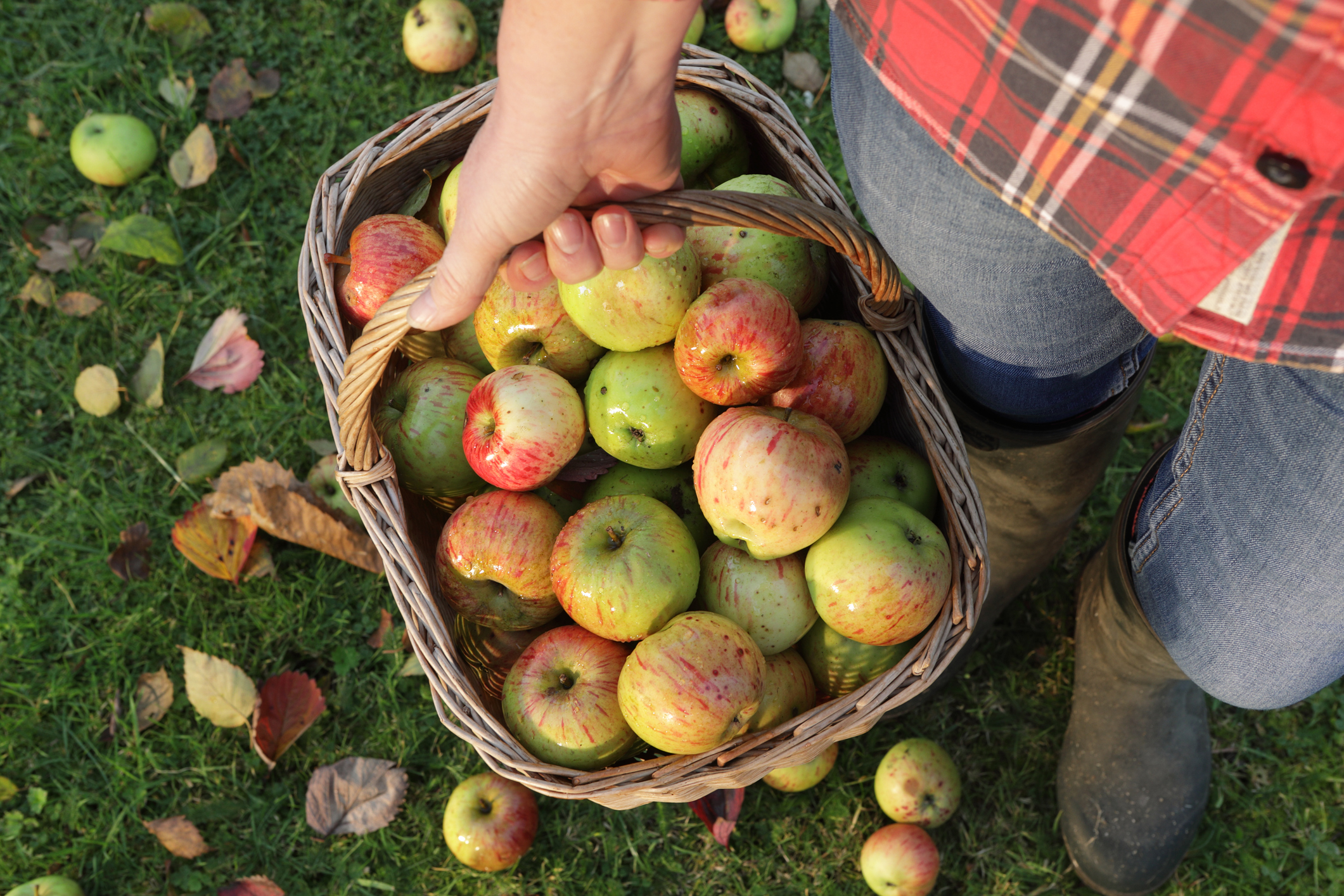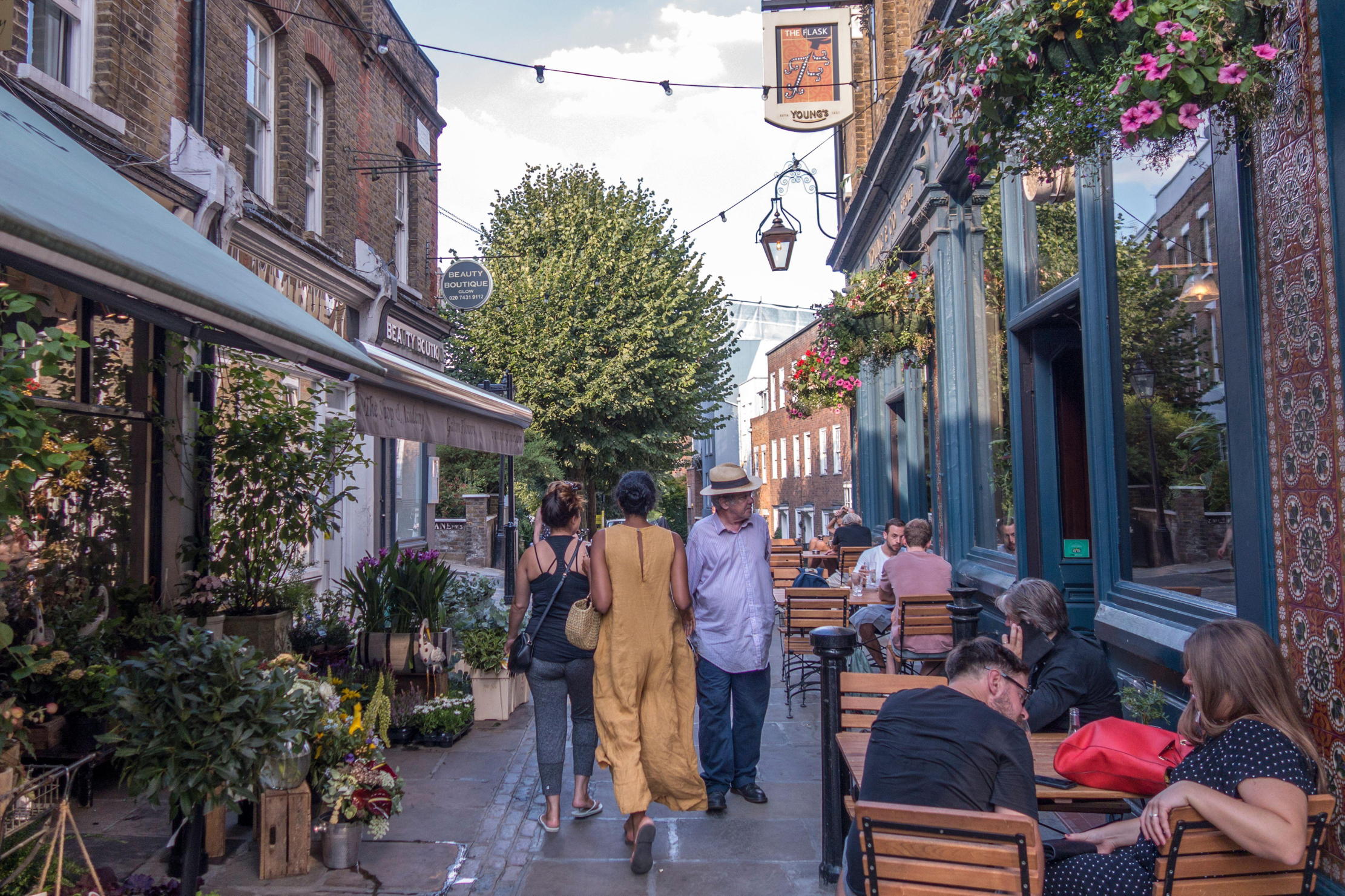The best apples for picking, eating and storing
Much wisdom on English apples has been lost. Here Kathryn Bradley-Hole takes some advice from an old sage on the English apple in all its guises.


With year-round availability of imported apples in the shops we seem to have lost the knowledge of when and how to eat apples - which ones to eat straight away and which ones to put into store. The following information I gathered from an impeccable source: the writings of Edward Bunyard (1878-1939), nurseryman, epicure and connoisseur of fruit [especially apples] in the early years of the 20th century. As a rule of thumb, the earliest ripening apples [those falling off the tree mature in August and early September] are best eaten straight away; those which come later need to develop maturity and depth of flavour and should be stored in a cool garage, cellar or, indeed, a traditional apple store.
Here is some seasonal advice from the great Mr Bunyard, (a regular contributor to Country Life’s gardening columns in the first half of the 20th century):
APPLES: THE AUTUMN DESSERT ‘Though apples begin their season in August they do not become matter for serious consideration till September. The early apples are adolescents, cherry young folk whose fresh and sprightly juice is welcome during their short visit. Let us gather them from the tree as we take our garden walks, for with the earliest, such as Irish Peach and St Everard, only a few days in the fruit room will rob them of their chief qualities: crispness and juice.’
ON COX APPLES (COX’S ORANGE PIPPIN) ‘To many there is but one apple, and that is Cox’s Orange, whose admirers have grown from year to year and whose name has now become as well known as those household words, Bass and Guinness. The expert, however, cannot admit that this excellent fruit is first and the rest nowhere. To him such isolation suggests that name whose one idea of wine is port. The Blenheim, the Ribston, Gravenstein, and the lesser-known Orleans Reinette are all in their class incomparable, and those who limit themselves to a Cox lose much. However, for the winter months Cox has it, and, as it will keep from November till May in a cool cellar, it forms the mainstay of the winter dessert. When shall we begin to use it? Not, I think, before November. Growers anxious to get their money in, and buyers, impatient for its delights, conspire to bring it into the shops in September, a crime against all the canons of a gastronomical taste.’
STORING APPLES ‘To the buyer of fruit, the sooner after picking that he can lay in a store the better, and nothing excels a cool, dampish cellar. Those who have not this resource can keep them quite well, wrapped in greaseproof paper in a cool outdoor shed or any cool room, provided that they are in the dark.
‘The great dessert apple of commerce in England is the well-known Worcester Pearmain, which, when unripe, as it usually is sold, is all that an apple should not be. When really ripened on the tree it is acceptable in lieu of anything better, juicy, sweet, and with its own raspberry-like flavour. Cox and Worcester are the two English dessert apples which are largely grown for our markets, and after these we must speak of varieties which readers will have to grow for themselves.
‘My own list for epicures would be as follows: St Everard, in late August, has for a fleeting period a shadow of the Cox flavour. St Ednumd’s Russet in September has a rich sweetness and nutty flavour quite its own. James Grieve fills the later September and early October days most efficiently. A mellow golden flesh and a rich flavour make it a Sauterne among apples. Gravenstein, which follows, leans near to hock and, like that incomparable liquid, may be taken young, even from the tree, or kept till Christmas. No apple has a more individual flavour; alas, that its cropping powers are so small! Ribston Pippin in November needs no praise; Egremont Russet, a little before, is valued for its nutty sweetness, the real old russet flavour combined with all the garden virtues.
Sign up for the Country Life Newsletter
Exquisite houses, the beauty of Nature, and how to get the most from your life, straight to your inbox.
‘In November, side by side with Cox’s Orange, comes in the best apple of all, in my opinion, the Orleans Reinette, a chateau claret to the Cox’s Sauterne. With something of the Blenheim, more of the Ribston, I know no fruit more worthy to close a good dinner, and one that can stand up to a port more fearlessly.’
From: The Epicure’s Companion by Edward and Lorna Bunyard, J.M. Dent, 1937.
-
 A day walking up and down the UK's most expensive street
A day walking up and down the UK's most expensive streetWinnington Road in Hampstead has an average house price of £11.9 million. But what's it really like?
By Lotte Brundle
-
 Life in miniature: the enduring charm of the model village
Life in miniature: the enduring charm of the model villageWhat is it about these small slices of arcadia that keep us so fascinated?
By Kirsten Tambling